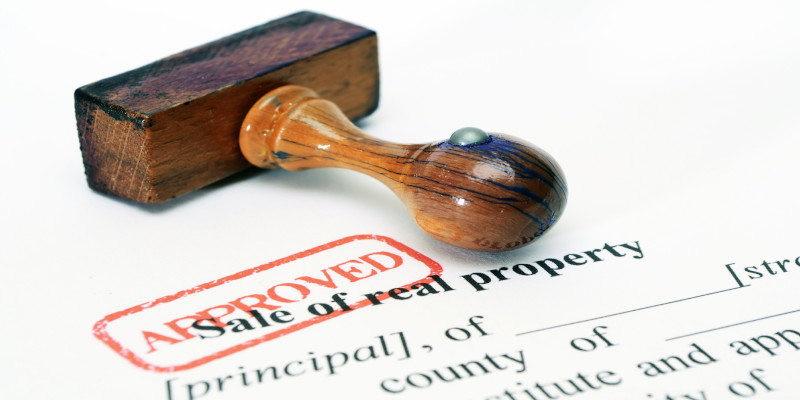
When a dispute over rightful ownership in Texas occurs over land, tenements, or other real property, a “trespass to try title action” is the method for resolving those disputes. Tex. Prop. Code Ann. § 22.001. Once resolved, a trespass to try title action determines ownership of the property and allows the rightful owner immediate possession of the land if it has been withheld. Tex. Prop. Code Ann. § 22.001(b).
Strength of Title
A strong chain of title which definitively proves ownership of the property is the key to successfully proving ownership. Lance v. Robinson, 543 S.W.3d 723, 736 (Tex. 2018); Martin v. Amerman, 133 S.W.3d 262, 265 (Tex. 2004). Proof of ownership should be in one of the following forms: title emanating from sovereignty of the soil, meaning from the time the property was first conveyed from the state; superior title emanating from a common source, an older title being superior to a newer one; a title by limitations; or prior possession with proof of no property abandonment. Lance v. Robinson, 543 S.W.3d 723, 736 (Tex. 2018); Martin v. Amerman, 133 S.W.3d 262, 265 (Tex. 2004). Without proving title through one of the aforementioned methods, even expert testimony in favor of the plaintiff is not enough by itself to prove ownership. Ramsey v. Jones Enterprises, 810 S.W.2d 902, 904 (Tex. App.—Beaumont 1991, writ denied); Tex. Jur. 3d, Quieting Title & Determining Adverse Claims §§ 49 to 52.
Other Requirements
A trespass to try title action must include the following:
(1) the real names of the plaintiff and defendant and their residences, if known;
(2) a metes and bounds description of the premises including the county or counties in which the premises is situated; or a description with sufficient certainty to identify the premises, so that from the description possession of the premises may be delivered;
(3) the interest the plaintiff claims in the premises, whether fee simple or otherwise and, if the interest is undivided, the amount of the plaintiff's undivided interest;
(4) that the plaintiff was in possession of the premises or entitled to possession;
(5) that the defendant unlawfully entered upon the premises and dispossessed the plaintiff; including the date, and withholds possession from the plaintiff;
(6) if rents and profits or damages are claimed, facts showing the plaintiffs entitlement thereto and the amount thereof; and
(7) a prayer for relief.
Tex. R. Civ. P. 783
The petition is filed in the district court of the county where the property is located. If the plaintiff succeeds in proving ownership of the property, he or she usually receives a writ of possession and may also recover damages for rents, profits, use of the property, and any improvements required. However, attorney’s fees are generally not available to the prevailing party. Tex. R. Civ. P. 804; Tex. R. Civ. P. 806.
Defending the Trespass to Try Title Action
The weakness or even complete lack of title proof of the defendant does not mean that the plaintiff has proven ownership. In fact, the defendant is not even required to provide the title and, as a result, may actually prevail without offering proof of ownership or possession. Hejl v. Wirth, 161 Tex. 609, 343 S.W.2d 226 (1961); Kennedy Con., Inc. v. Forman, 316 S.W.3d 129, 138 (Tex. App.—Houston [14th Dist.] 2010, no pet.); A defendant also has the right to file a general denial or simply to plead not guilty of the plaintiff’s claim, which further requires the plaintiff to prove all the required elements as well as the plaintiff’s right to recover the property and monetary damages. Doria v. Suchowolski, 531 S.W.2d 360, 362 (Tex. Civ. App.—San Antonio 1975, writ ref' d n.r.e.) If the court does not side with the plaintiff, then a take nothing judgement will remove the title from the plaintiff and give that title and its interest in the lands to the defendant. Halbert v. Green, 156 Tex. 223, 293 S.W.2d 848 (1956); Glenn v. Lucas, 376 S.W.3d 268, 274 (Tex. App.—Texarkana 2012, no pet.).
A trespass to try title action is a particularly difficult action for a plaintiff or defendant. Using a competent real estate lawyer will provide the best chance of success in these types of cases.
All information provided on Silblawfirm.com (hereinafter "website") is provided for informational purposes only and is not intended to be used for legal advice. Users of this website should not take any actions or refrain from taking any actions based upon content or information on this website. Users of this site should contact a licensed Texas attorney for a full and complete review of their legal issues.
